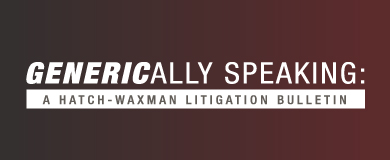- Acumen Powered by Robins Kaplan LLP®
- Affirmative Recovery
- American Indian Law and Policy
- Antitrust and Trade Regulation
- Appellate Advocacy and Guidance
- Business Litigation
- Civil Rights and Police Misconduct
- Class Action Litigation
- Commercial/Project Finance and Real Estate
- Corporate Governance and Special Situations
- Corporate Restructuring and Bankruptcy
- Domestic and International Arbitration
- Entertainment and Media Litigation
- Health Care Litigation
- Insurance and Catastrophic Loss
- Intellectual Property and Technology Litigation
- Mass Tort Attorneys
- Medical Malpractice Attorneys
- Personal Injury Attorneys
- Telecommunications Litigation and Arbitration
- Wealth Planning, Administration, and Fiduciary Disputes
Acumen Powered by Robins Kaplan LLP®
Ediscovery, Applied Science and Economics, and Litigation Support Solutions
-
April 15, 2024Robins Kaplan Named to 2024 BTI Client Service A-Team
-
April 9, 2024Robins Kaplan LLP Files Complaint Against Social Media Giants Meta, Snap, TikTok on Behalf of Spirit Lake Nation, Menominee Indian Tribe of Wisconsin
-
April 8, 2024Tara Sutton, Emily Tremblay Shortlisted for Euromoney’s Women in Business Law Awards
-
April 24, 2024IP Leadership Executive Summit
-
April 24, 2024IP Odyssey: Navigating the Latest Developments in Intellectual Property Law
-
April 30, 2024Navigating Generational Dynamics
-
March 2024e-Commerce: Pitfalls and Protections
-
March 22, 2024‘In re Cellect’:
-
March 14, 2024How Many Cases Have You Tried to a Verdict?
-
September 16, 2022Uber Company Systems Compromised by Widespread Cyber Hack
-
September 15, 2022US Averts Rail Workers Strike With Last-Minute Tentative Deal
-
September 14, 2022Hotter-Than-Expected August Inflation Prompts Massive Wall Street Selloff
Find additional firm contact information for press inquiries.
Find resources to help navigate legal and business complexities.
Cadence Pharma., Inc. v. Paddock Labs., Inc.
January 07, 2013

Case Name: Cadence Pharma., Inc. v. Paddock Labs., Inc., C. A. No. 11-733-LPS, 2012 U.S. Dist. LEXIS 142585 (D. Del. Oct. 1, 2012) (Stark, J.)
Drug Product and Patent(s)-in-Suit: Ofirmev®; U.S. Pat. Nos. 6,028,222 (“the ’222 patent”) and 6,992,218 (“the ’218 patent”)
Nature of the Case and Issue(s) Presented: At issue in this opinion are defendants’ Fifth Affirmative Defense, alleging patent misuse, and defendants’ Seventh Affirmative Defense, alleging plaintiffs have asserted invalid patent claims and therefore not entitled to costs under 35 U.S.C. §288. Plaintiffs filed a motion to strike those affirmative defenses. The court denied plaintiffs’ motion.
Why Defendants Prevailed: Because a majority of the district courts within the Third Circuit that have held that the heightened pleading requirements of the Supreme Court decisions in Twombly and Iqbal do not apply to the pleading of affirmative defenses, the court rejected plaintiffs argument that defendants’ affirmative defenses were not pled in a manner that would satisfy those decisions.
The court did not strike defendants’ fifth affirmative defense, asserting patent misuse, because defendants predicate their affirmative defense on the paragraph IV notification letter they provided to plaintiffs before the filing of the instant suit. In that letter, defendants provided a detailed explanation of how, in defendants’ view, the patents-in-suit are not infringed by defendants’ proposed ANDA product, and how (in any event) the patents-in-suit are invalid and/or unenforceable. Defendants contended that “[d]espite this information, Plaintiffs and their counsel filed the present suit with no reasonable bases for doing so” and, “[a]s such, Plaintiffs have attempted to extend the scope of the ’218 and ’222 patents beyond their legally permissible scope with intended anticompetitive effects.” The court held that although defendants have not nearly proven the purported facts on which their patent misuse defense is based (and may never do so), there was not clear deficiency in the pleading that would justify the relief of striking the affirmative defense and removing it from this case.
Next, defendants contended that 35 U.S.C. § 288 bars plaintiffs from recovering costs because plaintiffs did not enter a disclaimer of their invalid claims at the USPTO before commencement of this suit. It was undisputed that plaintiffs did not file a disclaimer before filing suit, and that there has been, as yet, no finding that any claim of the patents-in-suit is either invalid or unenforceable. Plaintiffs cited legal authority in the form of non-precedential decisions from the Federal Circuit and Delaware District Court to the effect that Section 288 applies only when patent litigation is commenced after a determination of invalidity. Defendants cited to inconsistent authority from the Supreme Court and the Third Circuit construing the predecessor statute to Section 288. Ultimately, the court held that a motion to strike is not the appropriate vehicle to resolve this disputed question of law, and therefore did not strike defendants’ seventh affirmative defense.
Related Publications
Related News
If you are interested in having us represent you, you should call us so we can determine whether the matter is one for which we are willing or able to accept professional responsibility. We will not make this determination by e-mail communication. The telephone numbers and addresses for our offices are listed on this page. We reserve the right to decline any representation. We may be required to decline representation if it would create a conflict of interest with our other clients.
By accepting these terms, you are confirming that you have read and understood this important notice.
